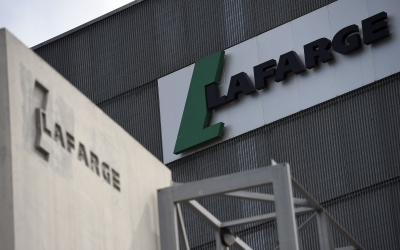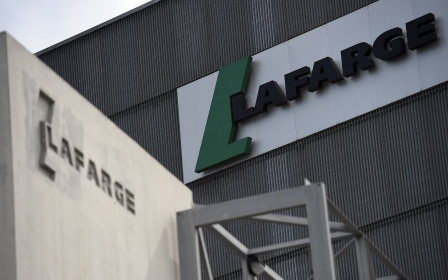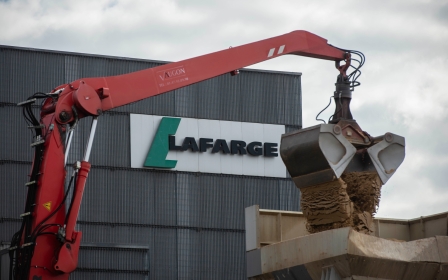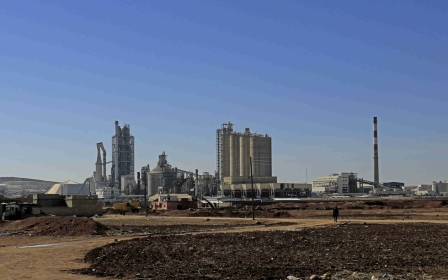French court rules Lafarge can face 'crimes against humanity' charges for operations in Syria
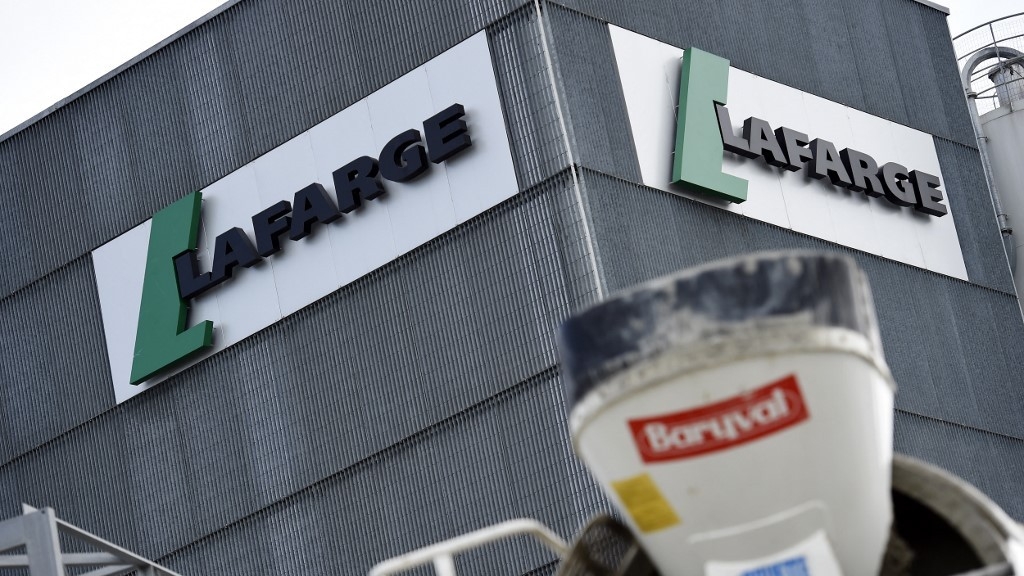
France's highest court denied a plea by French cement manufacturer Lafarge on Tuesday to drop charges of complicity in crimes against humanity.
The verdict was linked to an investigation into their operations in Syria, following the outbreak of war in 2011.
The decision, affirming a previous ruling by a lower court, does not constitute a judgment of guilt. This procedural verdict allows the extensive investigation into the company's potential criminal responsibility, particularly concerning the significant charges of crimes against humanity, to proceed.
The company achieved a limited victory when the court dismissed charges related to endangering the lives of its employees in Syria.
In a statement, Lafarge referred to the decision as a "legacy issue" that it is managing through legal proceedings in France, but did not offer any additional remarks.
Stay informed with MEE's newsletters
Sign up to get the latest alerts, insights and analysis, starting with Turkey Unpacked
According to Reuters, the timeline for concluding the investigation remains uncertain, and it is yet to be determined whether prosecutors will ultimately choose to bring the case to trial for a verdict on the essence of the allegations.
'Crimes against humanity' charge
In June 2018, Lafarge was charged with complicity in crimes against humanity and financing a terrorist organisation over payments it made to militant groups in Syria.
However, an appeals court dropped the crimes against humanity charges in November 2019, after finding four rights organisations - Sherpa, the European Center for Constitutional and Human Rights (ECCHR), Chredo, and Life for Paris - could not act as plaintiffs in the case.
Sherpa and ECCHR appealed to the Court of Cassation to have the "complicity in crimes against humanity" charges reinstated.
The cement giant is accused of paying armed groups, including the Islamic State (IS) group, millions of dollars through middlemen in an effort to keep its factory in Syria’s Jalabiya open. It is also suspected of selling cement from the factory to IS.
The company was also charged with endangering its employees in Jalabiya, which lies between northern Syria’s Manbij and Raqqa.
Lafarge has repeatedly denied its responsibility for payments made to militant groups in Syria.
In July 2021, a news report citing a confidential government document revealed that French intelligence officials were aware of an agreement between the cement manufacturer, Lafarge, and IS.
The report, published by the French daily Liberation, showed that the state "was well aware of the conditions under which Lafarge maintained its activity in Syria in territory partly occupied by the Islamic State".
"It is a document that leaves no room for doubt," the paper said.
Middle East Eye delivers independent and unrivalled coverage and analysis of the Middle East, North Africa and beyond. To learn more about republishing this content and the associated fees, please fill out this form. More about MEE can be found here.


